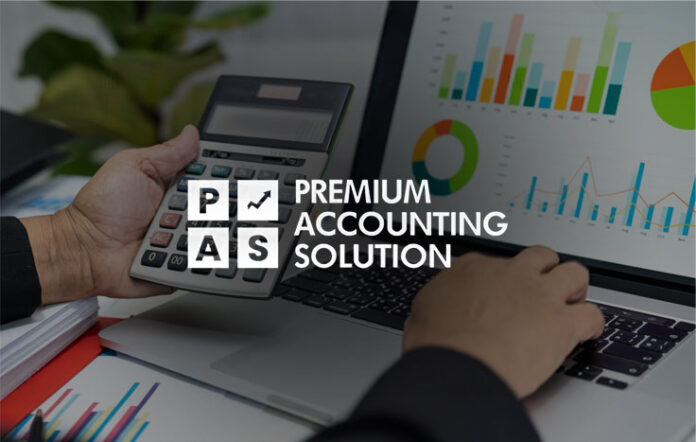In the intricate landscape of modern business, selecting the right financial partner is a pivotal decision that can significantly influence the trajectory of an organisation. Among the myriad choices available, accounting firms stand out as essential collaborators, playing a crucial role in financial management, compliance, and strategic decision-making. As businesses navigate the complexities of financial regulations, tax codes, and economic landscapes, the expertise and support provided by an accounting firm become paramount.
Choosing the right accounting firm requires a thoughtful evaluation of various factors to ensure alignment with your business goals, values, and operational requirements. In this exploration, we will delve into the key considerations that should guide your decision-making process, empowering you to make an informed and strategic choice in selecting an accounting firm that not only meets but enhances your financial objectives. From industry-specific expertise to technological proficiency and cultural compatibility, each factor plays a vital role in establishing a robust financial partnership that fosters success and growth.
Here are key factors to consider when selecting an accounting firm:
1. Reputation and Credibility:
Checking Reviews and Testimonials:

- Online Reviews: Look for reviews on platforms like Google, Yelp, or industry-specific websites. These reviews can provide insights into the experiences of other clients with the accounting firm.
- Testimonials: Request testimonials from the accounting firm’s existing clients. These firsthand accounts can offer a more detailed understanding of the firm’s strengths and weaknesses.
Verification of Credentials:
- Certifications: Ensure that the accounting firm and its professionals hold relevant certifications, such as Certified Public Accountant (CPA) or Chartered Professional Accountant (CPA). These certifications indicate a commitment to professional standards.
- Professional Affiliations: Check if the firm is a member of professional accounting associations or industry groups. Affiliations can demonstrate a commitment to staying updated on industry best practices.
2. Expertise and Specialisation

Industry Knowledge:
- Specialisation: Assess whether the firm specialises in industries relevant to your business. Specialised knowledge can be crucial in navigating industry-specific regulations, tax codes, and financial challenges.
- Case Studies: Request case studies or examples of the firm’s previous work in your industry. This can showcase their ability to handle challenges specific to your sector.
Client Experience:
- Similar Clients: Inquire whether the accounting firm has experience working with businesses or individuals of similar size and complexity. This can give you confidence that they understand the unique needs and challenges associated with your scale of operations.
3. Services Offered:
Range of Services:
- Comprehensive Services: Evaluate the breadth of services offered by the accounting firm. Beyond basic accounting, a firm offering advisory services, financial planning, or specialised consulting can provide more holistic support.
- Scalability: Consider whether the firm can scale its services to meet your current needs and accommodate future growth. This ensures a long-term partnership that evolves with your financial requirements.
4. Technology and Innovation

Tech Integration:
- Software Utilisation: Inquire about the accounting firm’s use of modern accounting software. Integration with technology ensures efficiency, accuracy, and timely reporting.
- Data Security: Discuss the firm’s approach to data security and privacy. Understanding their measures for protecting sensitive financial information is crucial in the digital age.
5. Communication and Accessibility:
Responsive Communication:
- Communication Channels: Clarify the channels of communication and their responsiveness. A clear and transparent communication strategy is vital for addressing queries, concerns, and updates promptly.
- Accessibility: Ensure that you know who to contact for specific matters and how quickly they can respond. Accessibility to key professionals fosters a more efficient working relationship.
6. Fees and Billing Structure

Transparent Billing:
- Understanding Fees: Clearly understand the firm’s fee structure, whether it’s hourly rates or fixed-fee arrangements. Transparency in billing ensures there are no surprises, and you can budget effectively.
- Hidden Costs: Discuss and clarify any potential additional fees or hidden costs. An open discussion about fees establishes trust and helps avoid misunderstandings.
7. Client-Focused Approach
Understanding Client Needs:
- Client Consultation: Choose a firm that takes the time to understand your goals, challenges, and priorities. A client-focused approach involves active consultation to tailor their services to your specific needs.
- Proactive Insights: Assess whether the firm goes beyond routine compliance work to offer proactive insights and advice. A firm that actively contributes to your financial strategy adds significant value.
8. Size of the Firm
Tailored Services:
- Size Considerations: Consider whether a larger firm’s breadth of services or a smaller firm’s personalised attention aligns better with your needs. Each size has its advantages, and the right fit depends on your preferences and requirements.
- Resource Capacity: Ensure that the chosen firm has the resources to handle your requirements effectively. This includes having an adequate number of qualified professionals and support staff.
9. Regulatory Compliance
Adherence to Standards:
- Verification of Compliance: Verify that the accounting firm adheres to relevant regulatory standards and guidelines. Compliance is crucial for the accuracy and reliability of financial statements and reports.
- Audit Processes: Inquire about the firm’s audit processes and how they ensure compliance with accounting standards. This is particularly important if your business requires audited financial statements.
10. Long-Term Compatibility
Scalability and Flexibility:
- Scalability: Assess the potential for scalability in the firm’s services. A firm that can adapt to your changing needs as your business grows ensures a long-term and dynamic partnership.
- Flexibility: Consider the firm’s flexibility in adapting to changing circumstances, such as shifts in industry trends, regulatory changes, or modifications to your business structure.
Conclusion

In conclusion, choosing the right accounting firm is a strategic decision that requires careful consideration of various factors. By conducting thorough research and evaluations based on the criteria mentioned above, businesses and individuals can establish a strong and productive financial partnership.







